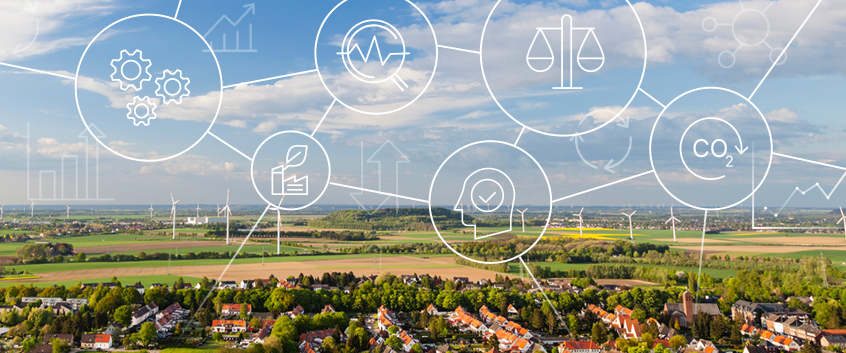
Department of System Analysis and Sustainability Assessment
Where, when and how can renewable resources take over the supply of materials and energy? What environmental, social, economic and other effects are associated with this? How can we achieve a sustainable balance between resource use and the resulting impacts, and the provision of materials and energy? And what knowledge is necessary in order to avoid destabilisation of such future renewable based systems?
In a world undergoing constant transformation, meeting societal needs poses major challenges: climate change and extreme weather events are altering natural systems and causing disruptions, along with the social and political crises that often accompany them. At the same time, fossil resources must be replaced quickly, and additional CO₂ needs to be removed from the atmosphere. Transformation of the resource base offers opportunities, but also presents risks. It can only succeed if it is technically feasible, affordable and environmentally sound. One thing is certain: land availability, which determines the extent to which renewable resources can be used, is limited. Therefore, the transition to sustainable solutions must be designed wisely to contribute meaningfully to sustainable development.
Researchers at the Department of System Analysis and Sustainability Assessment examine and assess the potentials and impacts of using renewable energies and bioeconomy resources on nature, economy and society. To do this, we apply models and methods from material flow analysis, energy system analysis, extended life cycle assessments, technology assessment and geospatial information systems, and link them with market- and environment-based modelling approaches.
Our research questions include: What are future pathways for sustainable use of renewable resources? What is to be expected in terms of new technologies and economic structures? How can limited land area and available biomass be used most effectively? Can climate protection, adaptation and CO₂ removal be jointly achieved in future landscapes? Where do particular risks lie, and what positive synergies between various sustainability goals can be unlocked? How can these be supported not only through policy incentives and planning, but also by information and monitoring systems?
Our research objective is to develop a comprehensive understanding of the interactions between renewable resource sources and their applications within environmental and societal contexts. To accomplish this, we design holistic and innovative modeling frameworks that characterize these dynamics and collaboratively explore diverse future development pathways with stakeholders. By doing so, we provide robust decision support for sustainable strategies related to renewable energies, CO₂ removal, and the bioeconomy—thus helping to shape desirable and resilient futures in a rapidly changing world.
Latest background papers:
Cooperation partners:
UFZ-research fields and programms:
IEA reports:
Targeted analyses and recommendations for action for the establishment of the bioenergy in various countries but also internationally are provided by the expert reports of the IEA Bioenergy. The aim of IEA Bioenergy, founded in 1978, is to improve cooperation and information exchange among countries that have national bioenergy research, development and implementation programmes. The IEA acts as a policy advisor on energy issues to 28 Member States and the European Commission. The work of the IEA Bioenergy is organised in so-called "Tasks". Through Prof. Dr.-Ing. Daniela Thrän, the UFZ is currently represented as leader in Task 44 (Flexible Bioenergy and System Integration). The latest publications from the tasks and intertask projects can be found here:
Important opinions:
